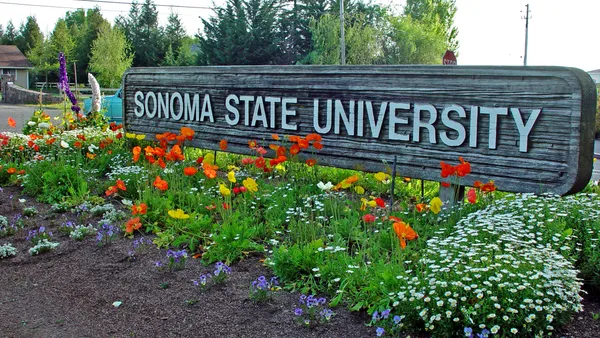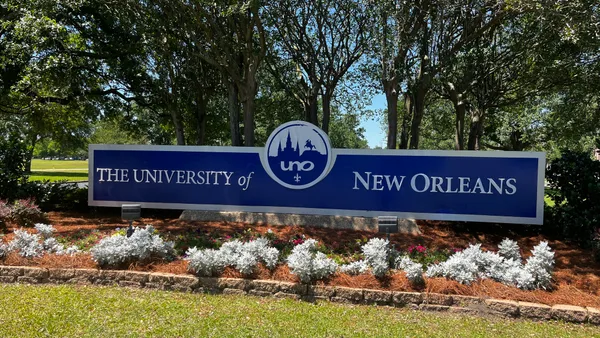Dive Brief:
-
A regional public university in Michigan is partnering with a public historically Black college in Georgia to create a pathway for students at the latter institution to earn a bachelor's and master's degree in engineering or computer science within five years.
-
The program will begin as early as the fall of 2021. Participating students at Fort Valley State University will pay Michigan's in-state tuition rates during their first year at Grand Valley and be able to visit the latter institution before enrolling.
-
The partnership is just one of the latest higher education initiatives meant to diversify STEM fields.
Dive Insight:
Grand Valley State sought out the partnership to help supply companies in western Michigan with a more diverse pipeline of workers, officials said. "The two biggest challenges (employers) always give me is, one, why aren't you graduating more people? … And two, why isn't the talent more diverse?" said Paul Plotkowski, dean of Grand Valley's computing and engineering college.
The university selected Fort Valley State because of its history of partnering with other universities to enroll students in advanced degree programs. Since 1983, Fort Valley State has run an initiative called the Cooperative Developmental Energy Program, which allows students to spend the first three years of their program at the HBCU and the final two at a partner institution to earn a master's or doctoral degree.
The new partnership with Grand Valley State follows the same structure. So far, about a dozen students have indicated interest in the program, said LuWanna Williams, director of Fort Valley's Center for Student Engagement.
"What Fort Valley brings to the table is a history of being able to create programs such as this," Williams said. "We have a talented pool of students that need the opportunity that this type of relationship can offer."
Racial disparities have long pervaded STEM fields. Just 6.2% of Black students who completed a master's degree in 2016 did so in STEM fields, compared to 22.9% of Asian students and 10.7% of White students, according to data compiled by the American Council on Education. Similar disparities exist in bachelor's and doctoral programs.
Several other initiatives have sprung up recently to address these inequities. Johns Hopkins University, in Maryland, recently launched an initiative called the GradPath Collaborative, which means to bolster the institution's relationships with HBCUs, the Baltimore Business Journal reported. Although it was originally designed for the university's engineering college, it has become an institutionwide initiative.
And Miami Dade College, in Florida, is partnering with an investment firm and a technology company to provide a free, 18-week data science program to underrepresented students. Participants will also receive credit they can apply to a bachelor's degree in analytics at Miami Dade, the South Florida Business Journal reported.














